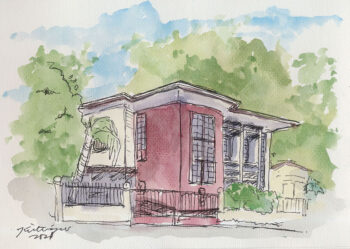CAGAYAN DE ORO CITY (MindaNews/19 October)–All of this is familiar to all, but as corny as it may sound, the barangay election is the sacred rite of a community of freedom lovers. It is the central rubric of democracy. As such, it ought to be approached with a certain amount of awe, a little more seriousness, and more solemnity than any social event, for it is the soul of our nationhood.
After Election Day on October 28, either of two outcomes will emerge: (a) politics in the next three years will be even more corrupt than before, or (b) the tide of corruption typified by the pork barrel scam and other abuses will begin to recede.
Which one emerges will depend entirely on us, the voters—sovereign citizens in whom sovereignty resides and from whom all government authority emanates.
Effect of our Behavior
If we behave as before and do nothing about banned acts like vote-buying and partisan campaigning in our neighborhoods, the outcome will reflect the will of corrupt candidates and their corrupt supporters. It will mean that we sold out our community and allowed it to be manipulated by cheaters and lawbreakers who buy votes and defy the rule of law.
Others may not interpret it that way, but we cannot deny to ourselves or to our conscience that by doing nothing, we chose the path of corruption for our society. We may not admit it, but we would feel ashamed instead of proud of having established such a government right where we live.
Awful events will bear this out. Corrupt barangay officials will prop up corrupt high-level officials. Transparency and accountability will be a joke. Public service will be interchangeable with self-service. Public funds will keep flowing to private pockets. Local public officials will be a discredit to their constituents.
Effect of our Vote
Even if you vote honestly, if others don’t, your vote will be as nothing, it will be outnumbered by those who accept money or sell theirs. It will mean that you have no control over community affairs and perforce must be resigned to a marginal role with little or no influence.
Very High Stakes
The choices boil down to an either-or outcome—corrupt or clean government. A corrupt government is a captive of people who sell their vote or who tolerate bribery and corrupt practices.
A clean government, on the other hand, is one that emerges out of free and open elections; it is voted in by honest votes and consists of honorable public servants.
For our sakes, let us hope these elections will produce a clean government for the grassroots; one that embodies the Filipino’s sense of decency and fairness, not one whose moral values are warped by greed and the traitorous values of dynasties and trapos that are today’s dominant officials.
Our society desperately needs barangay officials who understand that statesmen can rise only from decent, moral communities.
Today’s dominant officials managed to be elected and re-elected over the years by buying the loyalty and support of wrongheaded voters using money they stole from the same voters’ tax payments. So successful have these officials been in this confidence game that people made them leaders, labeled them “honorable,” and naively entrusted government to them.
But what did they do? They stole billions, maybe trillions, siphoning these into their pockets. They are traitors to the cause of good governance and ingrates to the sovereign community that elevated them to the pinnacle of power.
Dishonest Voters, Dishonest Officials
When leaders turn out to be scoundrels, hypocrites, thieves, or traitors to the sacred mission of public service, the people must accept the blame. It is the people who catapult candidates, worthy or unworthy, to victory. Their vote makes cheaters and scumbags win elections. Wrong-headed voters legitimize the desire of hypocritical candidates for self-service, self-glorification, and aggrandizement.
Such voters are products of a community’s corrupt culture. It is community that conditions the ethical values and practices of its neighborhoods. If it tolerates corruption, even small violations, it gives the message that some amount of corruption, large or small, is acceptable. If it tolerates more abuse, it fuels the spread of impunity and more corruption.
The primordial issue every Filipino community faces in the coming election is corruption: how it starts in the barangay, how it spirals upward, how it infects the entire political system, and how it feeds the national culture.
And because it starts in the barangay, spreading like a virus to other barangays, we are in a position to stop it! (MindaViews is the opinion section of MindaNews. Manny Valdehuesa writes from Cagayan de Oro and is the president and national convenor of Gising Barangay Movement Inc. He can be reached at valdehuesa@gmail.com.)







